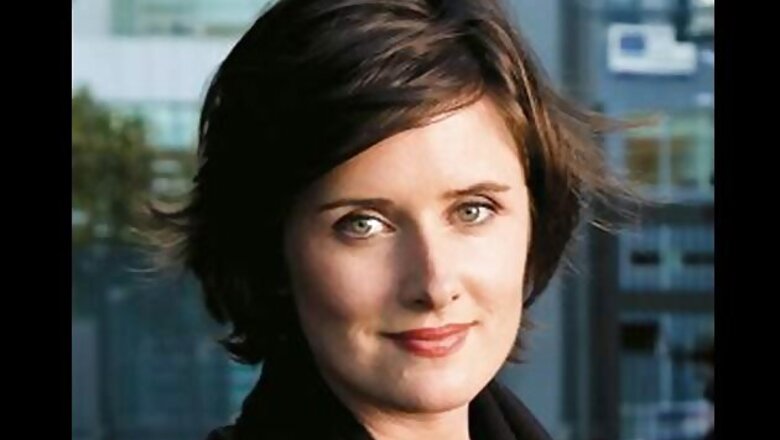
views
Valerie Casey
Age: 39
Designation: Founder-CEO, Necessary Projects, a design venture
Career: Held positions at IDEO, frog design, and Pentagram. Founded Designers Accord in 2007
Education: MA, Cultural Theory and Design, Yale University, BA, Swarthmore College
Interests: Reads 3-4 books a week (she calls that her biggest passion), cooking organic foods, hiking around craggy, cold beaches in California, camping
You founded Designers' Accord (DA) in 2007. At that time it was a unique forum, and you said it would wind up after five years as by that time its work would be done. Would you stick to your deadline?
It is a product of that particular time. We had conversations around sustainability and design and people kind of coalescence around it. Now we find far more sophistication in the way people in the field think about environment and sustainability. We started out talking about buildings and materials, passive cooling systems and so on, all very mechanical. Now we ask how can we solve policy issues? Now, the movement is ready to move on. But the network built through it, in business and academics, will continue to have a presence, and continue to collaborate and challenge each other.
How difficult was it to sustain DA, given that it relied on donations and had a low entry barrier?
Well, I did not want small companies to pay a fee as everyone should get a fair chance to be part of a very important discussion. Initially, had thought it would be a small subset of big design firms which would set the tone. But it had a viral effect, and smaller, quieter voices joined in and influenced bigger firms instead. I do agree that if you want to build a sustainable coalition, you do need a for-profit structure, which DA did not have. Hence my next venture Necessary Projects, is a for-profit, and funded by private industry in a business model that can sustain itself.
How do you convince companies to design environment friendly and sustainable policies in the face of arguments that it might risk their competitive advantage in terms of costs and other parameters?
Yes, I have heard that uninformed argument. Every study indicates that you make more money in the long run if you go green. But businesses can be incredibly short sighted on such issues. I think if we take the word 'sustainability' out of the picture and shift the conversation to talking about problem solving, we are much more successful in advancing our methodology.
For you design is more about problem solving than the traditional definitions of it?
Define design! It's more of a mindset, a sense of values and orientation to problem solving and risk taking. You design how to speak or how you dress. So good design means we are solving the right problems, for which you need to ask the right questions. We did move towards that in DA, and now with Necessary Projects, we have a high entry barrier (unlike DA). For 20 clients who come to me, I accept only one. Then I work with them to move to the vision where we can work with them. We are now trying to design better programmes around food security and diabetes.
What would the challenge in developing economies be where steps to go 'green' are seen as costly and often the main business is seen as separate from steps to save the environment?
Well anything that you can solve within your lifetime means you are not thinking big enough. Businesses can't say that look here's we did for the main business, and here's what we did on reducing carbon footprint and on design. The global consciousness on this topic has risen, almost to a tipping point in the last decade. The big conversation now is how do we talk about emerging economies and high growth rates and combine that aspiration around sustainability—because that would mean taking some things away. For example, how do you ask people in India not to drive as much?
So what is the way forward?
Well sustainability is in itself a complex thing—climate change, disruptions around us. We are in complex times. And this is a good time to experiment. That is what DA provided. We can't have 20th century metrics to define success. The future of design and business is about enabling collaborations in new ways while being competitive. Something like co-opetition.




















Comments
0 comment